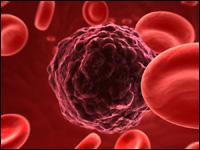Polyps are a small cluster of cells that grow on the lining of the colon. Most polyps tend to be harmless, and generally don’t cause noticeable symptoms. However, some polyps can eventually grow and develop into colon cancer. Colon cancer is the third most  common form of cancer in men and women in the United States. When diagnosed and treated early, colon cancer can be treatable. Dr. Glenn D. Madokoro, a gastroenterologist in Newport Beach, CA, recommends that people become familiar with their individual risk factors and predisposition to developing polyps, and to undergo colonoscopy screenings to detect abnormal cell growth in the large intestine and rectum.
common form of cancer in men and women in the United States. When diagnosed and treated early, colon cancer can be treatable. Dr. Glenn D. Madokoro, a gastroenterologist in Newport Beach, CA, recommends that people become familiar with their individual risk factors and predisposition to developing polyps, and to undergo colonoscopy screenings to detect abnormal cell growth in the large intestine and rectum.
What causes polyps?
Abnormalities or genetic mutations can sometimes cause cells to proliferate and continue dividing beyond what is necessary for healthy cell function. In the large intestine (colon), this unregulated cell growth can lead to the formation of polyps in the lining of the colon.
Are polyps cancerous?
Generally, most polyps are benign and do not necessarily develop into cancer. Larger masses can increase the likelihood that they will become malignant, and other risk factors such as genetics and lifestyle factors can also play a role in the development of cancer.
What are the signs and symptoms of polyps?
Polyps generally do not present symptoms. In some cases, people with polyps may experience rectal bleeding, changes in bowel habits and stool color, nausea, abdominal pain, vomiting, iron deficiency and anemia.
What are the different types of polyps?
There are several types of polyps. The most common forms are:
- Adenomatous - most common type, a small percentage usually become cancerous, however, they make up the majority of cancerous polyps.
- Serrated - vary in shape and size and location in the colon. Serrated polyps located in the upper colon are harder to detect and more likely to become cancerous.
- Inflammatory - usually develop as a result of ulcerative colitis or Chron’s disease, both of which can potentially increase a person’s risk of developing colon cancer.
Who is at risk for developing polyps?
Polyps are not uncommon and can develop in many people without becoming malignant. Dr. Madokoro advises his Newport Beach patients above the age of 50 to schedule a colonoscopy to screen for polyps (people with genetic predispositions to polyps and colon cancer may need to start screening earlier).
Other risk factors include:
- Race (African Americans are at higher risk)
- Alcohol and tobacco use
- Obesity
- Type 2 Diabetes
To learn more about your individual risk for developing polyps, and to schedule a colonoscopy, contact Glenn D. Madokoro, MD in Newport Beach, CA at (949) 548-8800 today!